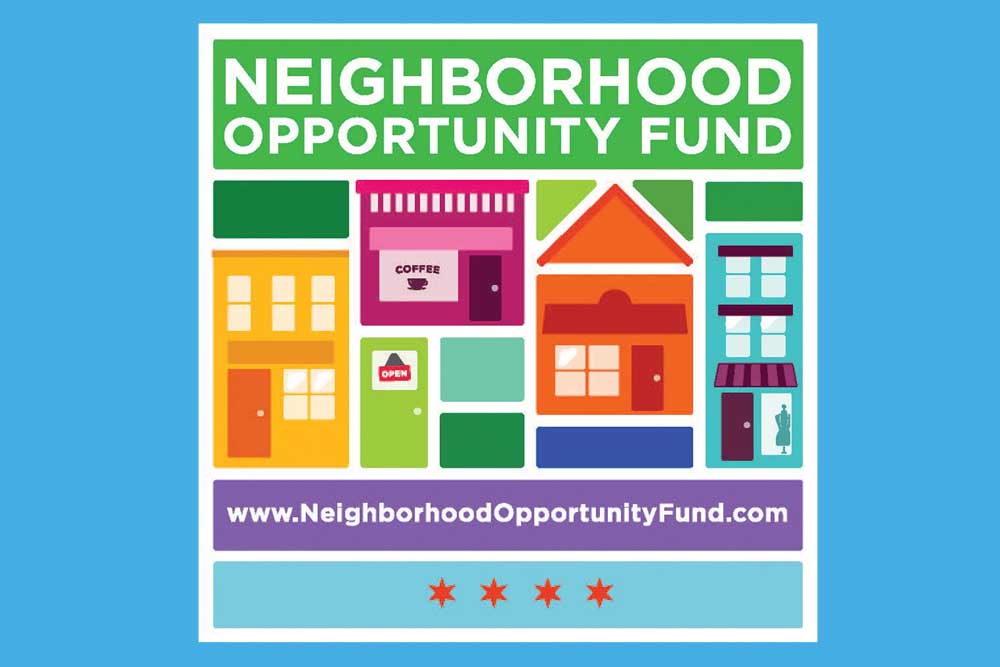The importance of the Neighborhood Opportunity Fund
The Neighborhood Opportunity Fund (NOF) represents a bold and strategic investment in inclusive growth across Chicago’s South Side, Southwest, and West Side communities—fueling lasting impact through local entrepreneurship, revitalized commercial corridors, and community-driven development.
By channeling resources directly into historically underserved commercial corridors, it empowers local entrepreneurs, strengthens small businesses, and breathes new life into community spaces. This fund doesn’t just support economic development, it nurtures cultural identity, fosters job creation, and ensures that longtime residents can shape the future of their neighborhoods.
What is the Neighborhood Opportunity Fund?
The NOF is a grant program that provides capital development grants to small businesses and cultural projects on Chicago’s West, Southwest, and South Sides. The fund’s unique model links the economic boom of downtown development to commercial revitalization in neighborhoods that have historically faced a lack of private investment.
- Funding Source: The money for the grants comes from a “Neighborhood Opportunity Bonus” program. Downtown developers can pay a fee to the city in exchange for zoning bonuses that allow them to increase the size or density of their new construction projects. 80% of these fees are directed to the NOF.
- Purpose: The goal is to support the growth and creation of vibrant commercial corridors, create jobs, and foster local wealth in communities that need it most.
Neighborhood Opportunity Fund Grant Details
- Grant Amount: The program provides grants of up to $250,000.
- Grant Type: The grants are provided as a reimbursement for up to 75% of eligible project expenses.
- Eligible Projects: The funds are for permanent capital improvements. Eligible projects include:
- Commercial businesses (retail, offices, restaurants, etc.)
- Cultural venues (museums, theaters, performance spaces)
- Non-profits with an on-site commercial component
- Eligible Costs: Funds can be used for new construction, storefront buildouts, façade repairs, plumbing, electrical work, HVAC work, and roof repairs. Acquisition costs are also eligible if they are part of a larger renovation or new construction project.
- Ineligible Projects: The grant does not fund residential, industrial, social services, or places of worship that lack a commercial component.
Application Requirements and Process
The application process is managed online through the City of Chicago’s Submittable portal. Here are some key requirements for applicants:
- Geographic Eligibility: The project property must be located on an NOF-eligible commercial corridor on the West, Southwest, or South Side. The City of Chicago provides an eligibility map to help applicants confirm their location.
- Proof of Site Control: Applicants must demonstrate they have legal control of the property through a recorded deed, a minimum five-year lease with landlord approval, or a purchase and sale agreement.
- Financial Readiness: Projects must show financial feasibility. Applicants who can demonstrate they have at least 50% of the total project costs secured are more competitive.
- Project Readiness: Applicants need to provide a clear plan for construction, including detailed budgets, construction bids, and a timeline. A business plan is also required.
- Community Impact: The application is evaluated on how the project will benefit the community, aligning with local plans and addressing neighborhood needs.
The application periods are typically accepted on a rolling basis and evaluated quarterly. The City also holds information sessions to help potential applicants understand the process and requirements.

